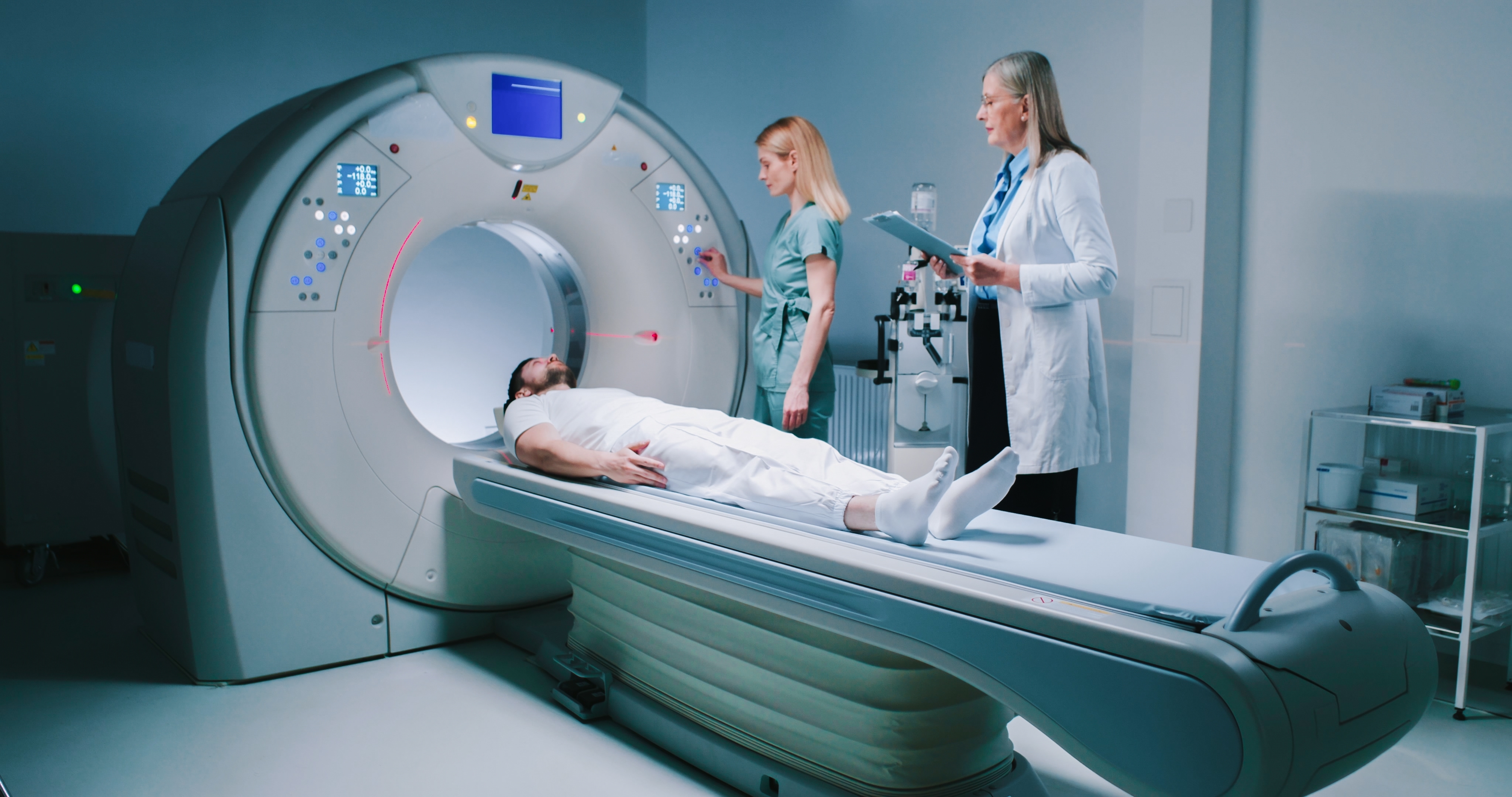
MRI Scan: Procedure Details and Risks
The main purpose of MRI scans is to detect injuries, tumors, heart issues, and other health problems that are not easily observable from the outside. However, do they have side effects?
What is MRI?
MRI (Magnetic Resonance Imaging) uses magnetic fields and radio waves to create detailed images of organs and tissues inside the body.
MRI is especially useful when x-rays cannot provide clear images of soft tissues and muscles. Therefore, this technology allows doctors to examine human internal structures without needing surgery.
Doctors typically rely on MRI results to diagnose diseases, plan treatments, and assess the effectiveness of previous treatments.
Areas that can be examined by MRI, including:
- Brain
- Spinal cord
- Breasts
- Heart
- Blood vessels
- Liver
- Uterus
- Prostate gland
Typically, MRI machines are large tubes surrounded by circular magnet fields.
How MRI Works
Approximately 60% of the adult human body is composed of water molecules, meaning it contains many hydrogen and oxygen atoms.
Each hydrogen atom has a proton, which acts like a tiny magnet and is highly sensitive to magnetic fields.
When you lie under the MRI scanner, the protons in your body align in the same direction.
The MRI machine then sends short radio waves to specific areas of your body, causing the protons to misalign.
When the radio waves are turned off, the protons realign at varying speeds, emitting millions of different signals.
These signals are captured and combined into detailed images displayed on a computer screen.
Preparation Before MRI Scan
Generally, patients do not need special preparation for an MRI. The doctor will just ask you to change into a hospital gown and remove all jewelry or accessories.
Additional preparations may be necessary for patients with metal implants, braces, dental fillings, or those who are pregnant.
Consult your doctor if you have cochlear implants, aneurysm clips, pacemakers, or other metal devices in your body.
Braces and fillings typically do not interfere with the MRI, but they may distort the images slightly, requiring the doctor to retake them.
Then, pregnant women must consult and check their pregnancy condition before undergoing an MRI scan.
If you feel anxious, inform the doctor. They may provide a sedative to help you relax.
In some cases, you might also receive an IV infusion containing a contrast agent to enhance the visibility of certain tissues in the MRI images.
Before the scanning process starts, a brief screening by the radiologist may occur. You may ask any questions related to the MRI process during this screening.
MRI Scan Procedure
Upon entering the MRI room, you will lie on a padded scanner table. Your body will be covered by a blanket and you will wear ear protection to shield against the scanner's noise.
The ear protection may also play music to ease anxiety, especially in children.
Once you are comfortably positioned, the doctor will operate the scanner from another room and ensure you are ready for the scan via intercom.
It is crucial for you to feel comfortable since you need to remain still during the scanning process to maintain image quality, and you may occasionally be asked to hold your breath.
The scanning process can last 20-60 minutes, depending on the body part being examined and the image detail required.
The process is safe and painless. However, if you feel uncomfortable, you can ask the doctor to stop the scan through the intercom.
Post-MRI Scan
After the scan, the doctor will review the images. If the results are insufficient, the MRI scan may be repeated right away.
If the images are satisfactory, you can usually go home or resume your activities. Later, you will have a follow-up consultation to discuss the MRI results with your doctor.
MRI Side Effects
MRI side effects are extremely rare. However, the contrast dye used may cause nausea, headaches, or a burning sensation at the injection site.
Allergic reactions like hives or itchy eyes can also occur. Inform the doctor immediately if you experience any symptoms.
Patients with claustrophobia might feel discomfort or fear, but most can manage with support from the radiologist and staff.
Moreover, modern MRI machines now have a wider tube design, such as the 3.0 Tesla MRI at Bali International Hospital.
This world-class hospital, located in The Sanur Health Special Economic Zone (KEK), is equipped with the latest MRI machines featuring Artificial Intelligence (AI) capabilities.
This technology makes the imaging process more efficient and the examination results more accurate.
Additionally, Bali International Hospital offers other advanced medical technologies, including the Linear Accelerator True Beam, 256-slice CT Scan, PET scan, Cathlab Biplane, and more.
There is also a world-class hotel called The Meru and a lush-tropical Ethnomedicinal Botanic Garden, perfect for staying during your treatment and recovery period.
To schedule an MRI scan, contact Bali International Hospital now.
Related Articles

Mole surgery is a safe procedure with a relatively high success rate. What preparations are needed ...

Kidney stones (nephrolithiasis) are hard objects formed from chemicals in the kidneys. Once formed, the stone ...

Dental implants can be an excellent solution for replacing damaged or lost adult teeth. Before deciding ...

